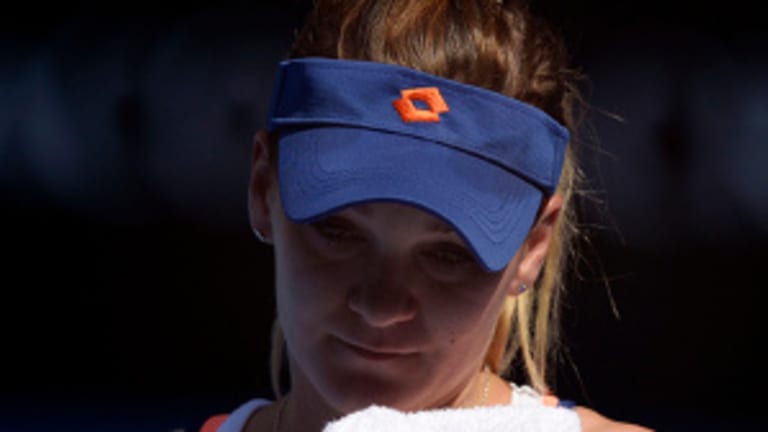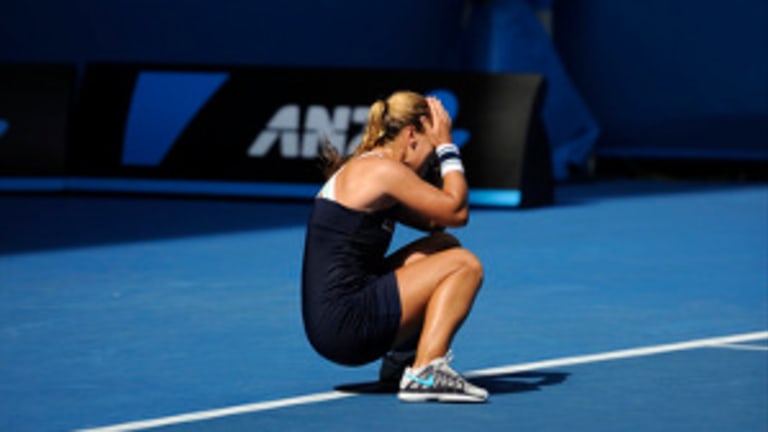MELBOURNE—We understand “Come on!” We know “Vamos!” We get “Allez!” And we’ve heard “Ajde!” and “Davay!” even if we’re not prepared to shout them ourselves. Is the tennis world ready to add another word to its lexicon of exhortation? It’s going to get one on Saturday night, when the surprising Dominika Cibulkova takes her place in the Australian Open women’s final in Rod Laver Arena.
“Pome!”
Tennis, a sport whose international reach never stops spreading, has now introduced English speakers to the Slovakian way to celebrate a winning point. More significantly, in Cibulkova, it has produced its first Slovakian Grand Slam finalist.
Cibulkova's nationality isn't the only reason why her run to the title match has been such a stunner. Her ranking is the same as her age, 24. At 5’3”, she’s far shorter than the WTA norm. Before this event, she had reached just one other Grand Slam semifinal, at Roland Garros in 2009, and she'd never made it past the round of 16 in Melbourne. Last year she won a total of four matches at the majors (she’s already won six at this Aussie Open alone). And 12 months ago in Sydney, Cibulkova lost to her semifinal opponent today, Agnieszka Radwanska, 6-0, 6-0.
Cibulkova is known for her hyperactive energy on court. Bouncing like a flyweight between games, she marches to get the next ball when a point’s over almost as quickly as she runs when it’s being played. Domi moves fast, and swings faster; not many players generate racquet speed like hers. Despite never cracking the Top 10, she’s a threat to everyone—Cibulkova has three wins over Maria Sharapova and two over Victoria Azarenka. Her problem has been keeping all of that energy under control long enough to be consistently successful from week to week. Most of the time, Domi has gone big with her shots, and gone home.
Today Cibulkova knew that she had no choice but to take risks against the steady, heady Radwanska. Domi had to go big and take whatever consequences, good or bad, came her way.
“Against her,” Cibulkova said, “you have to earn every point, you have to do the right thing, and that’s what I did. I knew I had to go for my shots, and even if I do some mistakes, not back up.”
Cibulkova started aggressively, but when the expected resistance from her opponent came, she was ready for it. She broke Radwanska in the opening game, but it wasn’t until the fourth game that fans here were officially put on upset alert. After a couple of effective shots from Radwanska, who seemed finally to be warming up, Cibulkova snuffed her out for good by saving five break points. She won them on her racquet, with two swing volley winners and a forehand winner—and, naturally, let out a big ol' "Pome!" for good measure. From there, Radwanska, who would win just two more games, went back into her shell. Cibulkova hit 21 winners and made eight errors, saved eight of nine break points, and never gave Aga a chance to show off any of her fabled ninja moves. You can’t use your hands in tennis if your legs won’t get you to the ball.

